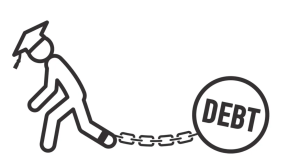
Divorce is a complex journey that involves disentangling various aspects of life, including financial ties. Among the many considerations, understanding what happens to debt is crucial for both parties. This article aims to shed light on the intricacies of handling debt during divorce proceedings.
Body:
Identifying Joint and Individual Debts: Begin by explaining the distinction between joint and individual debts. Detail how joint debts, typically accrued during the marriage, are shared responsibilities, while individual debts remain the responsibility of the specific spouse who incurred them.
Community Property States vs. Equitable Distribution States: Highlight the impact of state laws on the division of debts. In community property states, debts incurred during the marriage are generally considered shared, while equitable distribution states aim for a fair, though not necessarily equal, division.
Creating a Comprehensive List of Debts: Emphasize the importance of creating a thorough inventory of all debts, including credit cards, mortgages, personal loans, and car loans. This list serves as a foundation for equitable debt distribution.
Negotiating Debt Division: Explore the various approaches to negotiating debt division during divorce, such as mediation, collaborative divorce, or traditional litigation. Discuss the importance of open communication to reach fair agreements.
Responsibility for Joint Debts: Clarify that even if a divorce decree assigns responsibility for joint debts to one party, creditors may still hold both parties accountable. Offer insights into strategies for protecting one’s credit during this process.
Seeking Professional Advice: Encourage readers to seek the guidance of financial advisors or attorneys specializing in divorce. Highlight the role of these professionals in providing tailored advice based on the specific circumstances of the divorce.
Debt Consolidation and Refinancing: Discuss the option of debt consolidation or refinancing to simplify debt responsibilities post-divorce. Explain how these strategies can help individuals establish financial independence.
Protecting Credit Scores: Stress the importance of monitoring and protecting credit scores during and after divorce. Suggest actions such as closing joint accounts and removing a spouse’s name from shared debts.
Considering the Impact of Bankruptcy: Touch upon the option of bankruptcy as a last resort for those overwhelmed by joint debts. Outline the potential impact on credit and the importance of understanding the implications before proceeding.
Divorce is a challenging process, and understanding how debt is handled is a crucial aspect of achieving a fair and amicable separation. By being informed, proactive, and seeking professional advice, individuals can navigate the complexities of debt division, protect their financial well-being, and pave the way for a more stable future.












